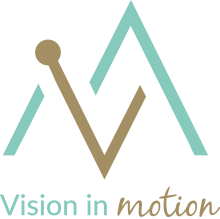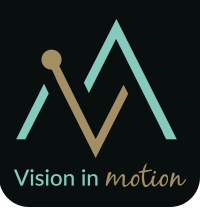Speak Right - The Art of Effective Communication
PROPOSAL: SPEAK RIGHT THE ART OF EFFECTIVE COMMUNICATION
Thank you for affording us the opportunity to submit a proposal for the above workshop. Our facilitation will include a baseline pre course assessment which delegates will bring to the first session. Should you accept our proposal, this will be forwarded to delegates a week prior to training commencing.
Training:
The course will be both practical and theoretical; however, the emphasis will be on the practical application of all knowledge taught. Practical application will be in the form of group and individual tasks and activities with facilitator intervention and feedback which will include analysis of video footage – audio recordings of each delegate; role play; presentations and written activities.
***Method of delivery:
Facilitator run workshops, study guide, activity workbook, ice breakers, power point presentations, audio visual stimulus, a drumming workshop to highlight pause and rhythm in speech, case studies, dramatic presentations, role play, peer assessment, group and individual activities and a summative portfolio of evidence including reflective learning statements on what has been learnt, what has changed in practice, the significance and impact of the learning on self and others and areas that the delegate was unable to master that requires further improvement.
Duration:
In order to add value to your staff we recommend eight weeks – one day per week of contact time over an eight week period including homework tasks .
Delegates will receive:
- Certificates of attendance and achievement
- Training manuals
- Templates and a file for the Portfolio of Evidence
We look forward to hearing from you and will welcome any comments you might have as suggestions in order to add value to your trainers.
OUTCOMES:
- Identify the characteristics of an exceptional trainer
- Understand and identify different behavioural styles and adapt training as necessary
- Delegates will demonstrate their understanding of new material through completion of case studies and assessments
- Delegates will be able to explain what a solid training programme looks like
- Delegates will be able to describe a needs analysis
- Delegates will be able to identify and explain methods for making lecture based programmes active
- Develop strategies for handling disruptive participants
- Identify the pitfalls of various visual aid options and classroom seating and arrangements
- Present information in a clear concise engaging manner, demonstrate successful understanding of key concepts during a practice presentation
- Understand and be able to identify how speech happens
- Understand that delegates have vocal rights
- Pitch pace power pause and rhythm in speech
- Understand and identify roots of habits, accents and what needs to be corrected within one’s own unique habits
- Mastering intercostal diaphragmatic breathing techniques
- Have an understanding of what an accent is and is not
- The importance of clear and articulate enunciation within an individual’s particular speech and style.
- Gain an understanding of the term coined “South African English,” and what it constitutes.
- Discuss terms and colloquialisms within different cultures.
- Understand and implement methods pertaining to intercostal diaphragmatic breathing to improve speech and breath control and telephone techniques
- Understand and be able to identify, recognise and correct speech irregularities and what those irregularities are.
- Have a clear understanding of what phonation is
- Understand the definitions of speech and phonetics
- Understand how vowel sounds are formed and their importance in the formation of accents and speech
- Understand how consonant sounds are formed and their importance in the formation of accents and speech
- Practically implement a total vocal workout
DAYS ONE & TWO
Day one – baseline assessment (practical) – identifying gaps, faulty and defective habits and individual remediation thereof.
| Item | Description |
|---|---|
| How speech happens | Understand how speech happens – identify organs of articulation in order to speak clearly |
| Declaring vocal rights | Accents do not define intelligence but impede communication |
| Dialects accents and roots of habits | Identify personal roots of habits and through neurotransmission realign and address roots of habits |
| Defining an accent | Accents – consonant and vowel sounds and how this impedes the communication process |
| Articulation and enunciation | Clear enunciation within an individual’s particular speech patterns and style in order to be understood |
| Application of knowledge | Identify the characteristics of an exceptional trainer and how to facilitate new found knowledge. |
| Learning how to learn – Dr Barbra Oakley | |
DAYS THREE & FOUR |
|
| A guide to South African English | Understand South African English and the different dialects within |
| Pidgin language | Terms, jargon and colloquialisms within differing cultures |
| Intercostal diaphragmatic breath contro | l Understand and implement methods pertaining to intercostal diaphragmatic breath control in order to improve oral communication |
| Recognising and correcting speech irregularities | Understand and be able to identify recognise and correct speech irregularities and what those irregularities are. |
| Application of knowledge | Identify the characteristics of an exceptional trainer and how to facilitate new found knowledge – identifying different learning styles Khan Academy – Learning how to unlearn and learn – you can |
DAYS FIVE & SIX |
|
| Phonation | Understand how phonation impacts speech |
| Speech and phonetics | Be able to define speech and phonetics |
| Vowel sounds | Understand how vowel sounds are formed and the importance of clear articulation during speec |
| Consonant sounds | Understand how consonants are formed and the importance of clear articulation during speech |
| The total vocal workout | Practically demonstrate a total vocal workout as a trainer |
| Application of knowledge | Identify the characteristics of an exceptional trainer and how to facilitate new found knowledge – emotional intelligence as a trainer - peer assessment Amy Cuddy – Your body language shapes who you are |
| Reflective learning statement | Journal entries five & six |
DAYS SEVEN & EIGHT |
|
| Sight readings and cold readings | Pronunciation general vocabulary and attitude |
| Vocal manipulation and control | Telephone techniques – aggression; passivity; assertion regarding tone; waffling, hesitating and devoicing. |
| Marking and saving the voice and accent | Containing and preserving vocal energy whispering lack of vocal support mumbling and over relaxing |
| Pitch pace power pause and posture | Understand and implement the big five critical skills for good speech |
| Reflection and evaluation | Individual and peer |
| Application of knowledge | Identify the characteristics of an exceptional trainer and how to facilitate new found knowledge – individual self-assessment Extra resources for training pack |
| Reflective learning statement | Journal entries day seven & eight |
Summative assessment written and practica
VENUE: Will be determined by the company (preferably off-site).
EQUIPMENT: Flipcharts, koki’s, data projector and sound will have to be provided at the venue.
INVESTMENT: R19 950.00 all inclusive (Max 20 people)
The above price includes:
- Pre-workshop consultation with HR/Management (1 hr.)
- Facilitation including teambuilding with a team effectiveness consultant
The above price excludes:
- Provision of training venue
- Cost of travel and accommodation for facilitators (where required)
- Meal
Project Manager: Adv. Mahomed Vahed
Contact: Rodney Frank 082 334 6403
Rodney@visioninmotion.co.za

